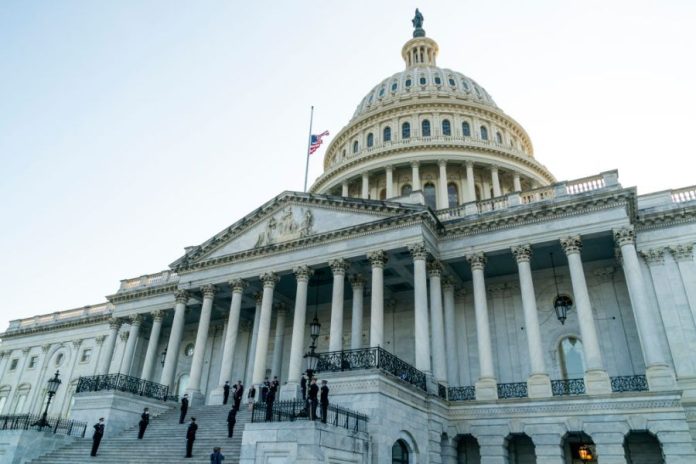
On Labor Day, we affirm that everyone should have the freedom to seek employment wherever they choose, and should never be bullied or harassed for exercising that freedom.
Americans should be able to get a job and go to work without, for example, being swarmed by knife-wielding Teamsters who trap them in vans for hours.
Unfortunately, that is not an exaggerated hypothetical, but a real situation that nearly 40 Boston-area Republic Services workers recently found themselves in as they pulled up in vans to a waste management facility being picketed by the Teamsters union.
Teamsters-controlled garbage collectors in Boston went on strike in July, leaving trash piling up across the city. To prevent a dangerous public health situation and to attempt to serve its customers, Republic hired workers to conduct periodic trash pickups while it negotiates with the Teamsters officials.
But as a group of these workers arrived in vans at a Republic facility in Revere, Mass., they were descended upon by a swarm of Teamster thugs who slashed the van’s tiers with knives, scratched it with keys, and threatened the workers inside.
According to a legal complaint filed by the company, the Teamsters constructed a makeshift barrier with buckets and two-by-fours and trapped the vans for three hours. This happened in full view of the Revere police, who, according to the complaint, “took no immediate action.”
The judge who heard Republic’s complaint also felt no action was warranted, even though the company detailed example after example of Teamsters militants blocking worker-operated garbage trucks on busy highways, cutting trucks’ brake lines, spraying cleaner on windshields to block drivers’ views, flashing strobe lights to blind drivers, and subjecting drivers to threats and abuse.
The striking Teamsters expect to be shielded from consequences at work, since the union has demanded “amnesty” for its members as part of negotiations. And with the police and courts looking the other way, it is likely they won’t face any legal consequences either.
Violence, threats, and the destruction of property have long been union tactics. But these tactics put people’s lives at risk. Workers have been beaten and killed for working during union strikes, and even for working in areas a union considered to be its “turf.” Unionized local police often ignore the problem.
Congress passed the Hobbs anti-extortion act so that federal charges could be brought in situations where local law enforcement refuse to act. But there’s a problem: According to a 5-4 Supreme Court decision in the controversial 1973 U.S. v. Enmons case, the Hobbs Act doesn’t apply to violent extortion committed in pursuit of “legitimate union organizing objectives.”
Union bosses can therefore order their union thugs to attack workers and destroy equipment in the hopes that an employer will capitulate at the bargaining table or a group of employees will agree to unionize — two outcomes which promise more dues revenue for the union.
That’s exactly the kind of extortionate tactic the Hobbs Act was meant to deal with, but the Enmons precedent blocks the way.
Union violence is an ongoing problem, made worse by politicians and a legal system that refuse to intervene. Boston city officials have even threatened fines if the garbage isn’t collected soon — fines not against the strikers or the union, but against Republic Services!
Some political leaders don’t tolerate union violence. Congressman Scott Perry (R-Pa.) has introduced a bill called the Freedom From Union Violence Act, which closes the Enmons Supreme Court loophole so that union bosses will once again have to fear prosecution under anti-extortion laws when they use violence for their own financial gain.
Every member of Congress who supports Americans’ right to work without being attacked or threatened by union militants should support Perry’s bill.
Mark Mix is president of the National Right to Work Committee.

